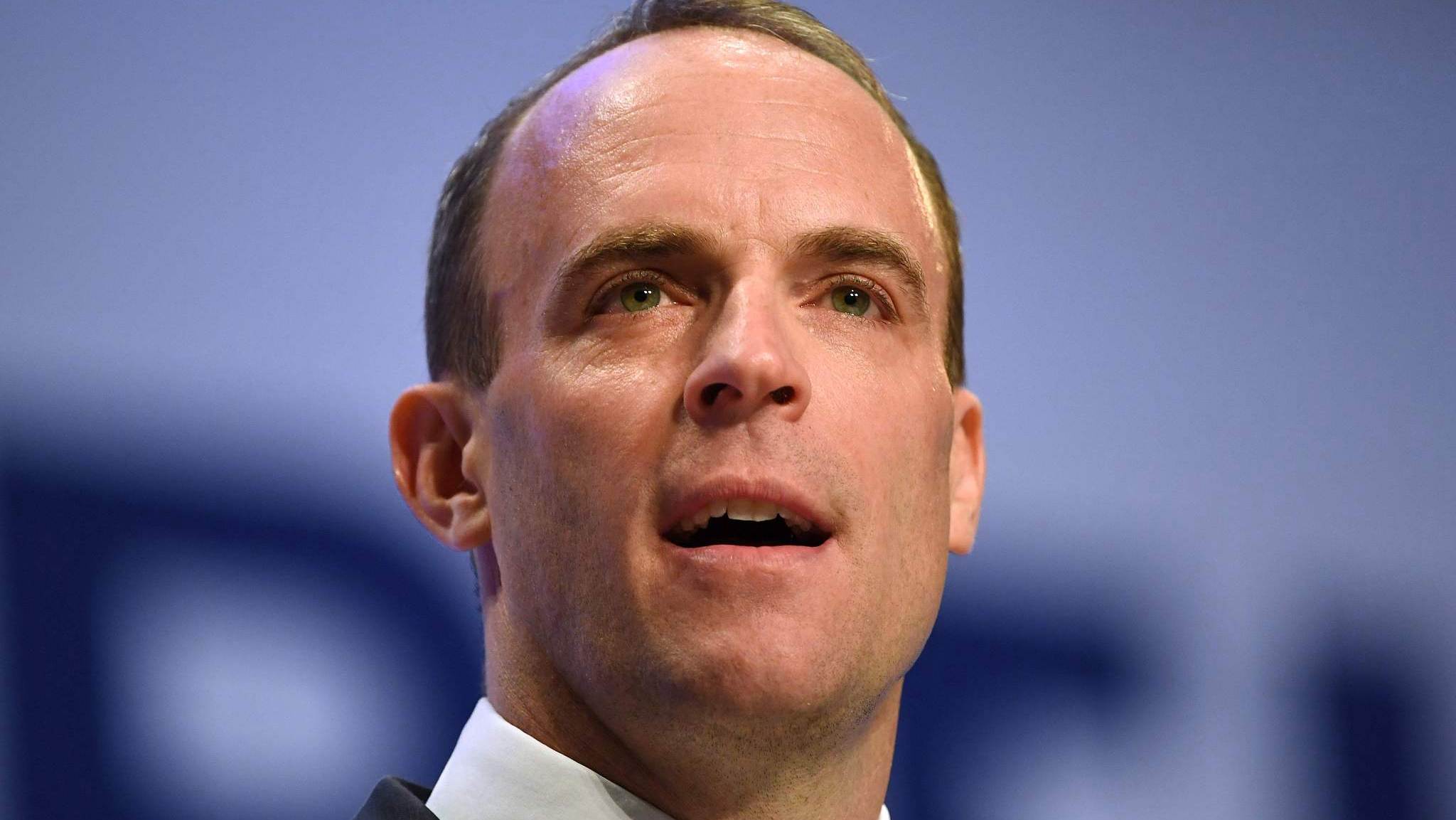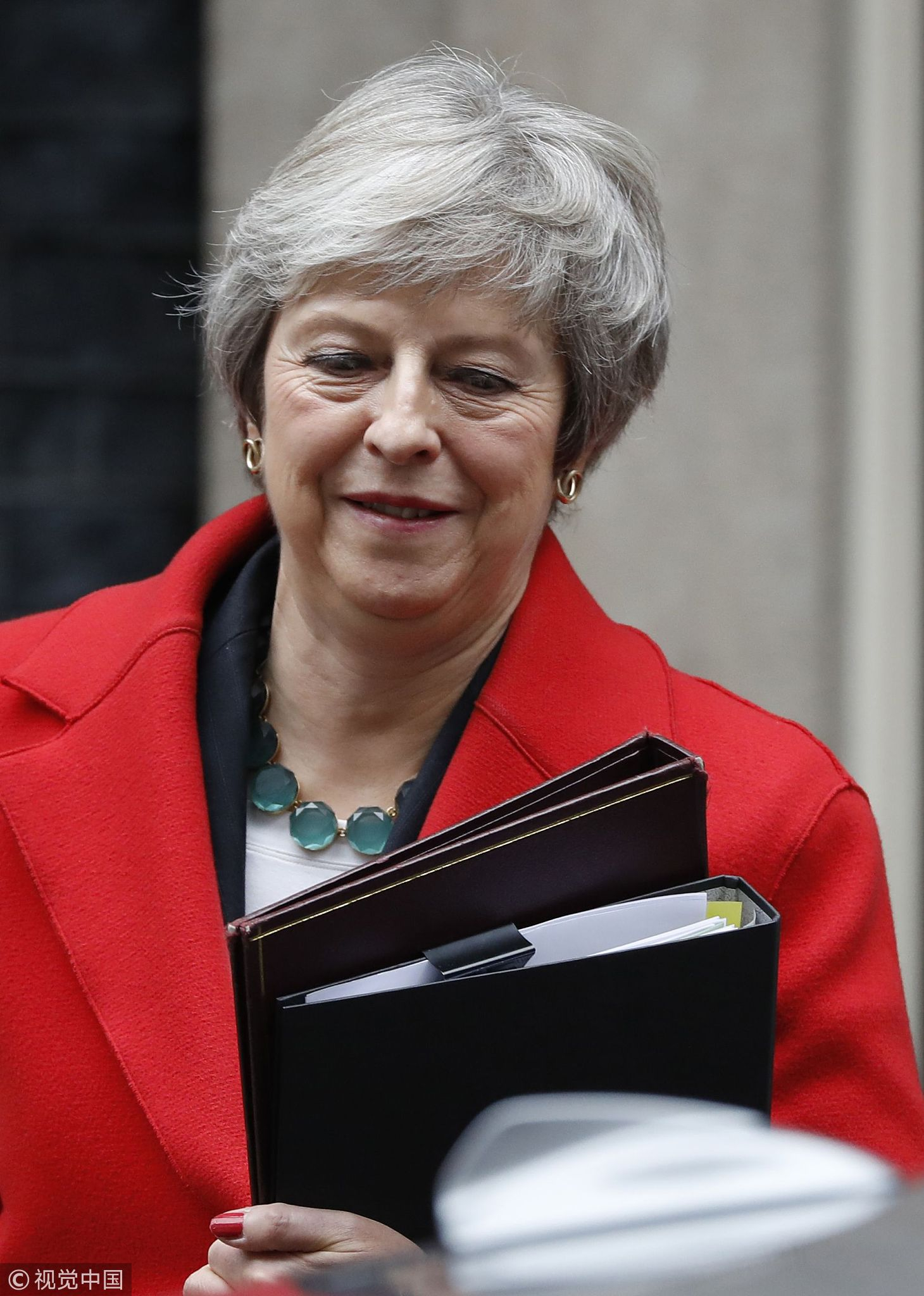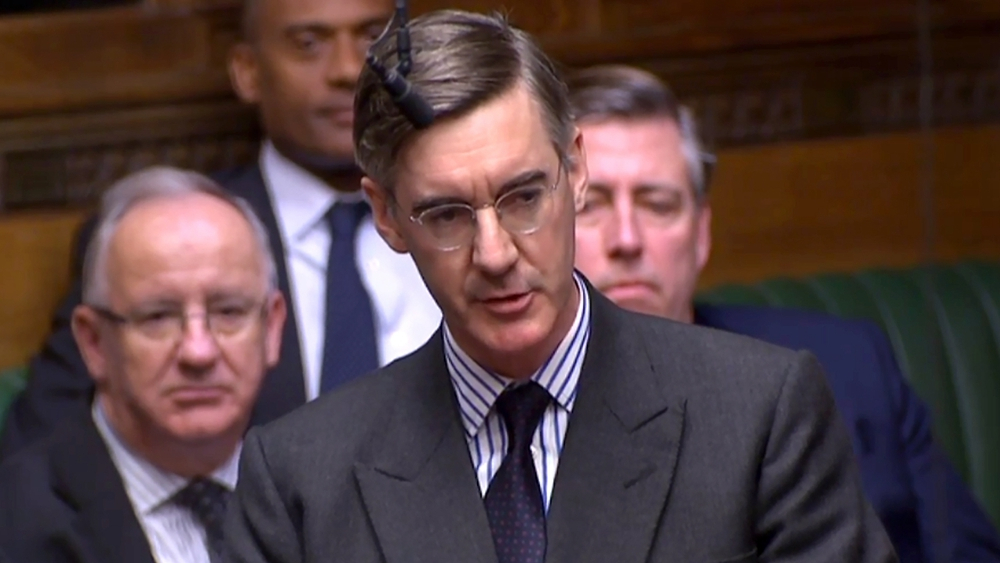
Politics
17:26, 15-Nov-2018
UK ministers including Brexit Secretary Dominic Raab resign
Updated
16:41, 18-Nov-2018
CGTN

UK Prime Minister Theresa May battled on Thursday to save a draft divorce deal with the European Union after her Brexit secretary and other ministers quit in protest at an agreement they say will trap Britain in the bloc's orbit for years.
Read more:
"Above all, I cannot reconcile the terms of the proposed deal with the promises we made to the country in our manifesto at the last election," Brexit secretary Dominic Raab said in his resignation letter.
"This is, at its heart, a matter of public trust. I cannot support the proposed deal."
The resignation of such a senior minister thrusts the United Kingdom into a political crisis just as May was attempting to garner support for a Brexit deal which her opponents have warned could sink her premiership.

Britain's Prime Minister Theresa May leaves 10 Downing Street in London to give a statement on the draft Brexit deal in the House of Commons, November 15, 2018. /VCG Photo
Britain's Prime Minister Theresa May leaves 10 Downing Street in London to give a statement on the draft Brexit deal in the House of Commons, November 15, 2018. /VCG Photo
It also throws the future course of the country's exit from the European Union into uncertainty: scenarios range from a calm divorce to rejection of May's deal, potentially ending her premiership and leaving the bloc with no agreement, or another referendum.
Raab said May's plan threatened the integrity of the United Kingdom and he could not support an indefinite backstop arrangement where the EU held a veto over Britain's ability to exit.
"No democratic nation has ever signed up to be bound by such an extensive regime, imposed externally without any democratic control over the laws to be applied, nor the ability to decide to exit the arrangement," Raab said in his resignation letter.
The 44-year-old was appointed to the role of Brexit minister in July this year following the resignation of his predecessor David Davis, who also quit in protest at May's strategy on leaving the EU.
Other officials that resigned on the same day include Work and Pensions Secretary Esther McVey, junior Northern Ireland minister Shailesh Vara, and junior Brexit minister Suella Braverman.

A video grab from footage broadcast by the UK Parliament's Parliamentary Recording Unit shows Conservative MP Jacob Rees-Mogg asking a question to Britain's Prime Minister Theresa May after she gave a statement to the House of Commons in London, November 15, 2018. /VCG Photo
A video grab from footage broadcast by the UK Parliament's Parliamentary Recording Unit shows Conservative MP Jacob Rees-Mogg asking a question to Britain's Prime Minister Theresa May after she gave a statement to the House of Commons in London, November 15, 2018. /VCG Photo
EU leaders are scheduled to meet on Nov. 25 to endorse the divorce deal.
Meanwhile, eurosceptic lawmaker Jacob Rees-Mogg, who announced that he was sending a letter of no-confidence in May, said on Thursday that a leadership challenge to May could be completed in weeks.
A vote can be triggered if 48 Conservative lawmakers write a letter of no confidence to the chairman of the party's so-called 1922 committee, Graham Brady.

SITEMAP
Copyright © 2018 CGTN. Beijing ICP prepared NO.16065310-3
Copyright © 2018 CGTN. Beijing ICP prepared NO.16065310-3